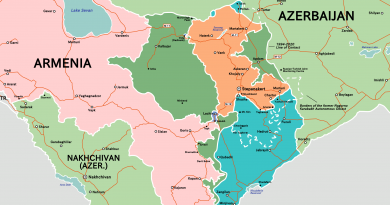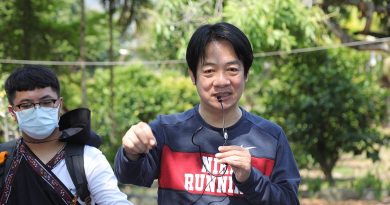FOCUS on Spring 2024 Elections: Taiwan
Madeline Kruszczynski
Staff Writer
The 2024 election of a small island in East Asia might have a large implication on the relationship between China, the United States, and its own liberty. On January 13, Taiwan held federal elections, demonstrating a major contest between the country’s most popular parties – the anti-China Democratic People’s Party’s (DPP) headed by Lai Ching-te, and pro-China Kuomintang (KMT).
Despite efforts of China to silence the DPP, Lai Ching-te emerged victorious. However, this success is not without its impending challenges. Nikkei highlights the challenges faced by Lai and the DPP, including the loss of their majority in the legislature and China’s unwavering commitment to reunification. This, combined with potential Chinese influence through local bribes, raises concerns about the potential shift towards more pro-China policies in the future. NPR reports the lack of support of the DPP party might send a ripple of more pro-China policies in the future.
According to BBC News, China sees Taiwan as a breakaway province that will someday come back under Beijing’s control, even if that means force is needed. In the context of this election, China regards the DPP to be a separatist movement and warned the Taiwanese population that a vote for the DPP would be a “choice between peace and war prosperity and decline,” as reported by The Atlantic Council.
Taiwan’s robust democratic system operates on the principles of fairness and freedom in elections, with an average voter turnout of 70 percent, as reported by Brookings. The democratic process in Taiwan, characterized by competitive elections, ensures a peaceful transfer of power and the protection of civil liberties, as acknowledged by Freedom House.
The 2024 Taiwanese presidential election marked the eighth democratic election in Taiwan, the first being in 1996. Across the Taiwan Strait, the Communist Party of China (CPC) perceives this electoral process not merely as a challenge to China’s claim over Taiwan but as a potential threat to the very existence and preservation of China and its cultural ideals. Taiwan’s commitment to a more liberal democratic model has, as reported by Al Jazeera, stirred frustration among the population in mainland China.
In response to these fears, Beijing is being accused of employing various tactics to influence the election, including the distribution of propaganda, financial support for pro-China influencers, and organizing trips to China for Taiwanese politicians, as highlighted by The Washington Post. One specific method employed by Beijing involves the promotion of ‘yimeilun,’ or “America skepticism,” where China circulates misinformation to instill fear about the role of the U.S. in Taiwanese politics. This strategy is designed to undermine support for the DPP, ultimately serving China’s interests. Additionally, Reuters reports that China enticed numerous local-level politicians with lavish trips to China during the recent winter, a calculated effort to sway their political affiliations before the election.
A wave of frustration has been expressed on social media platforms, particularly on Chinese social platform Weibo. In reaction to the Chinese government’s criticism of Taiwan’s electoral process, one social media user voiced their discontent, stating, “Enough, already – how can you criticize others’ elections when you don’t even allow elections at home,” Al Jazeera continues. Notably, many of these comments face removal by the Chinese government, sometimes within mere minutes of being posted.
According to the Council on Foreign Relations, a spokesperson for China’s Ministry of Foreign Affairs asserts that the election in Taiwan “will not change the basic fact that Taiwan is part of China, and there is only one China in the world.” This assertion aligns with China’s ‘One China’ policy, a diplomatic stance that contradicts Taiwan’s view of itself as a breakaway province. Although the DPP secured another term in the presidency, it is evident that China will persist in its efforts to achieve reunification with Taiwan, utilizing military exercises and propaganda, as reported by BBC News.
On a global scale, China’s interference in this election and its subsequent impact could encourage a pattern of authoritarian influence over democratic elections worldwide. Taiwanese Foreign Minister Joseph Wu emphasizes this concern, stating, “In 2024, there are more than 40 significant democratic elections globally. If China achieves success in Taiwan, it will undoubtedly leverage that experience to interfere in the elections of other countries,” reports The Washington Post.
The election showcased Taiwan’s commitment to a robust democratic system, supported by a high voter turnout and fair election process. However, China’s unwavering determination to control Taiwan, evident in its attempts to influence the election through various tactics underscores the broader threat of interference in democratic processes globally. The repercussions of this election extend beyond Taiwan’s borders, serving as a potential catalyst for China to replicate such interference in future democratic elections.
Image courtesy of Getty Images


